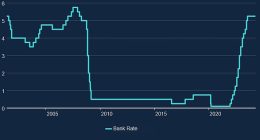
Bicycles scared people when they were first introduced, says Evan Spiegel. The lesson? Don’t be too quick to dismiss the usefulness of emerging technologies.
Spiegel, the CEO and co-founder of Snap, discussed the future of his company’s best-known product and the broader social media landscape at Fast Company’s Most Innovative Companies Summit on Tuesday. Snapchat has 265 million daily active users who send 5 billion snaps per day, but the company has expanded well beyond disappearing messages into new features like an interactive map, augmented and virtual reality, and a TikTok-like offering called Spotlight. Here are the tech innovations he expects will shape the social media industry and how we interact with Snapchat and other platforms in the future.
Augmented reality
Snap introduced augmented reality glasses called Spectacles in 2016, but it didn’t go well. Today, Spiegel says he sees untapped potential in augmented reality using just a smartphone. For example, users can try on products and buy them within social apps, increasing conversions and “transforming shopping into more of an experience, which hasn’t really been possible online historically,” he says.
AR could also be “transformative” for education, Spiegel says. It could make it easier, for instance, to learn about how the human body works–a big improvement over the trip to the morgue Spiegel remembers from his school days.
Privacy
Apple’s new privacy policy, which requires apps to ask permission to track users, could cut Facebook’s Audience Network revenue by as much as 50 percent, and it is going to make a dent in Snap’s profits, too, Spiegel says. Still, he maintained, users come first, and his company forwent revenue over the years by dodging practices like microtargeting to increase privacy for users, so the change won’t be as dramatic.
As for the future of privacy, Spiegel says users have rejected the idea that companies are entitled to collect their information, and are demanding more control. He posits a uniform framework that also gives people control over the different levels of privacy they prefer–a more advanced GDPR, the European Union’s massive privacy regulation responsible for those pop-ups asking you about cookies–would be best.
Short-form video and mapping
While everyone was stuck at home during the pandemic, Snap took the opportunity to make its Maps feature more interactive, so people could not just follow their friends around in Bitmoji form but see what stores they liked or even order takeout. Spiegel also touted Spotlight, which he says challenged the company’s aversion to viral content but now is helping creators generate income and even pay off student loans.
This article is from Inc.com









